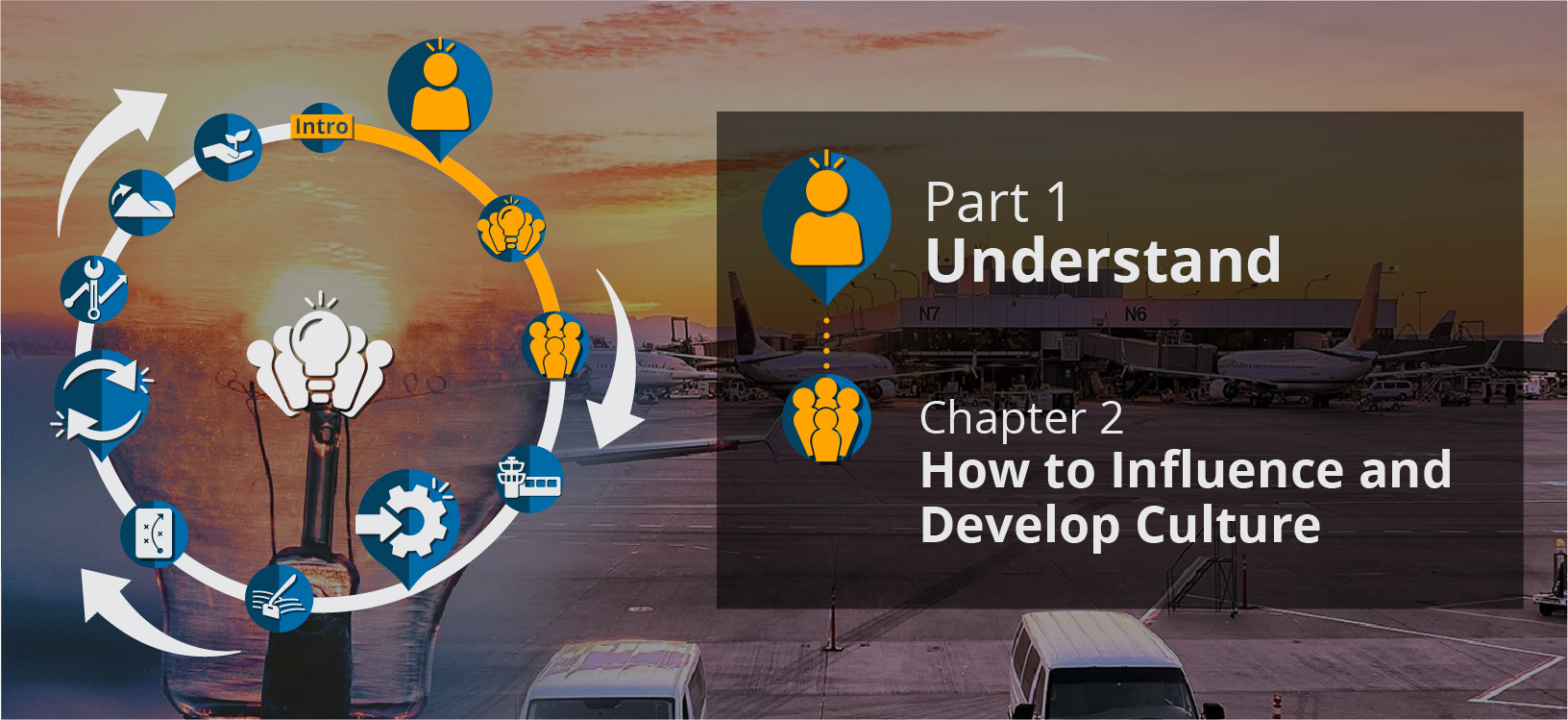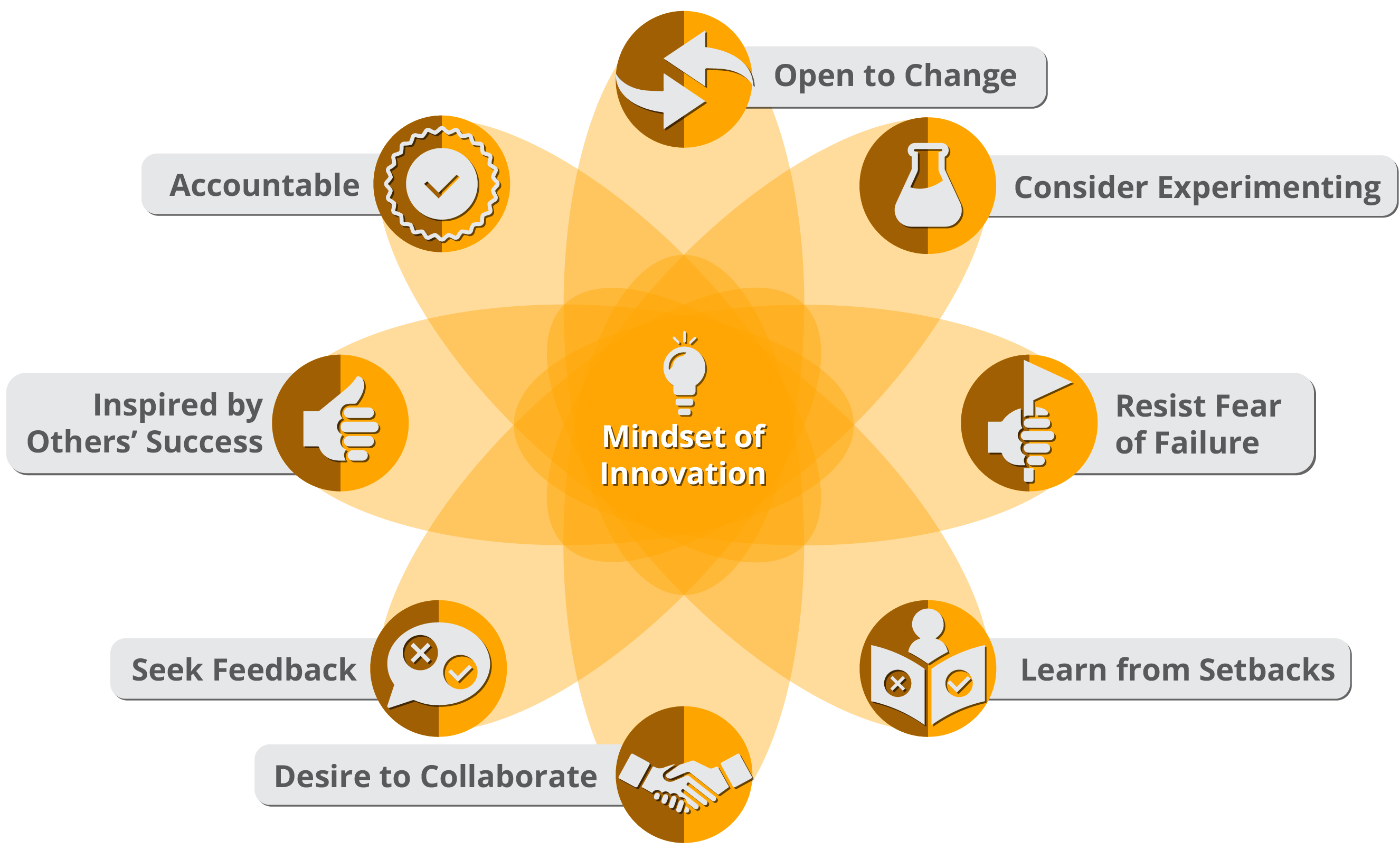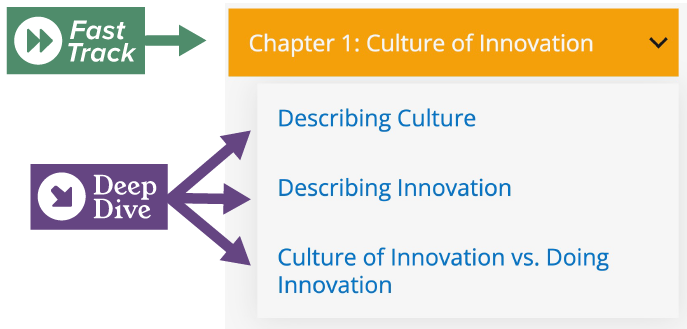

This is a Deep Dive page. Select the chapter for the Fast Track
How People Affect Culture
Since culture is all about people, it is important to understand how they impact and affect the overall culture of an organization.
Mindset of Innovation
When seeking to nurture innovation in yourself or the people in your organization, the goal is to foster a mindset change. According to Merriam-Webster, mindset can be defined as “a mental attitude or inclination.”1 As people go about their jobs and make daily decisions, their mindset affects how they behave in their organization-whether they choose to be leaders or followers, cautious or courageous, humorous or serious, outgoing or shy, and many other things. Regardless of their personality, people become more innovative once they develop a mindset that encourages it.
Mindset changes will be different for each person. Some people may need to become more adaptable to be innovative; others may need to change their definitions of success and failure to become comfortable with innovating. To understand how a mindset relates to innovation, it can be helpful to look at the characteristics that comprise an innovative mindset. Figure D2.3 presents several key characteristics.

Figure D2.3: The Innovative Mindset.
Here is how each characteristic of this mindset enables innovation:
- Open to change (agile): When you are open to change, you are inclined to seek out new ideas from others. Many start to embrace change itself after seeing the value that positive changes can bring.
- Consider experimenting: When you look at taking risks as exploring new ways of doing things, it can lead to a continuous learning process, often with unexpected benefits.
- Resist fear of failure: When you have the freedom to experiment without incurring negative consequences, you can ideate and try new things without holding back. You can even start to embrace failure in the journey to the right solution.
- Learn from setbacks: When you can look beyond the results of a first attempt, you remove shame and instead focus on what you can gain from an experience.
- Desire to collaborate: When you see the value and depth of what diverse perspectives can bring to the creative process, you will want to work alongside others.
- Seek feedback: When you are focused on improvement, you are not afraid to share ideas and ask for input, which can lead to new directions and positive changes.
- Inspired by others' successes: When you are encouraged by, rather than envious of, your colleagues, it unifies your organization and focuses everyone on collaborative goals.
- Accountable: When you are trustworthy, it strengthens relationships with others and leads to collaboration, which leads to new ideas.
As you uncover an innovation mindset for yourself, your colleagues, and your entire airport organization, another aspect that is important to consider is the “personas” of individuals. To learn more about these positive and negative behaviors of people in your organization, continue reading this chapter.


1 Merriam-Webster, Inc., “Mindset,“ accessed April 1, 2022, https://www.merriam-webster.com/dictionary/mindset.

